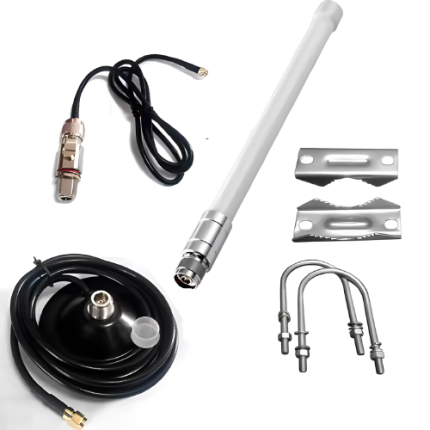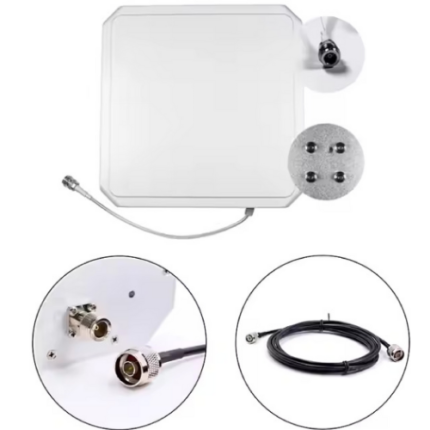Description
Technical Architecture of BLE and RFID IoT Enabled Healthcare Facility Management System
The BLE and RFID IoT Enabled Healthcare Facility Management System integrates Bluetooth Low Energy (BLE) and RFID technologies with advanced IoT protocols to streamline facility management. Key architectural components include:
- IoT Sensors and Tags: BLE beacons and RFID tags track assets, personnel, and environmental conditions.
- Gateways and Hubs: Collect data from BLE and RFID devices and transmit to the local server or cloud.
- Local Server: A robust server hosts on-premise data processing and management.
- Cloud Integration: Secure cloud-based storage for data analysis, remote access, and long-term storage.
- User Interface: Web and mobile applications provide real-time monitoring, analytics, and control features.
- APIs and Middleware: Facilitate seamless communication between hardware, local servers, and cloud platforms.
List of Hardware Components
- BLE Beacons: For real-time location tracking and monitoring.
- RFID Tags: Passive and active tags for asset and personnel tracking.
- IoT Gateways: Devices to aggregate BLE and RFID data and transmit to servers.
- Environmental Sensors: For monitoring temperature, humidity, and air quality.
- Network Switches and Routers: To ensure robust connectivity between hardware and servers.
- Local Server Hardware: High-performance systems for local data storage and computation.
- Power Backup Units: Uninterrupted Power Supplies (UPS) for system reliability.
Physical Placement Considerations
- BLE Beacons: Strategically placed within 10-30 meters of coverage for optimal signal strength.
- RFID Readers: Installed at key entry and exit points for real-time tracking.
- Gateways: Centrally located for maximum device connectivity and minimal interference.
- Environmental Sensors: Positioned in areas prone to environmental fluctuations, such as storage rooms or operating theaters.
- Network Infrastructure: Secure locations to avoid tampering or interference with routers and switches.
- Local Server: Placed in a climate-controlled, secure data center for maximum uptime.
Hardware Architecture
The hardware architecture of the system is designed for reliability and scalability:
- Input Layer: BLE beacons, RFID tags, and environmental sensors collect data.
- Processing Layer: IoT gateways aggregate and preprocess data before sending it to the local server or cloud.
- Storage Layer: Local servers handle real-time data storage, while cloud servers manage historical data.
- Output Layer: End-user interfaces display actionable insights and analytics.
Deployment Considerations
- Network Bandwidth: Ensure sufficient capacity for high data transmission rates from BLE and RFID devices.
- Redundancy: Implement failover mechanisms for critical hardware like gateways and servers.
- Compliance: Adhere to healthcare regulations for data security and privacy.
- User Training: Provide comprehensive training to healthcare staff on system operation.
- Testing and Calibration: Thoroughly test BLE and RFID devices to avoid signal interference.
List of Relevant Industry Standards and Regulations
- ISO/IEC 18000 (RFID Standards)
- Bluetooth Core Specification
- HIPAA (Health Insurance Portability and Accountability Act)
- GDPR (General Data Protection Regulation)
- ISO 27001 (Information Security Management)
- HL7 (Health Level Seven)
Local Server Version
Our system can be deployed with a local server configuration, ensuring secure, on-premise data management. This version is ideal for facilities with stringent data residency requirements or limited internet connectivity. The local server handles real-time data processing, storage, and analytics, eliminating reliance on external cloud services. GAO Tek Inc. provides high-performance local server solutions tailored to healthcare environments.
Cloud Integration and Data Management
For facilities requiring remote access and long-term storage, our system seamlessly integrates with cloud platforms. Data collected from BLE and RFID devices is securely transmitted to the cloud for advanced analytics and centralized monitoring. GAO Tek ensures robust encryption and compliance with industry standards for secure cloud integration. Our cloud-based dashboards provide healthcare professionals with actionable insights, enhancing operational efficiency.
GAO Tek Inc., headquartered in New York City and Toronto, Canada, is committed to delivering cutting-edge IoT solutions for healthcare facility management. Backed by four decades of innovation and stringent quality assurance, we support healthcare facilities in achieving seamless, efficient, and secure operations.
GAO Case Studies of BLE and RFID IoT Enabled Healthcare Facility Management System
Case Studies in the USA
- New York, NY
A leading hospital in New York City integrated BLE beacons and RFID tags for tracking high-value medical equipment and patient movement. GAO Tek’s system enabled real-time asset monitoring, reducing equipment loss and improving operational efficiency. For insights on asset tracking in healthcare, see AHRQ’s resources.
- Chicago, IL
In Chicago, a large research facility deployed GAO Tek’s IoT-enabled solution to monitor environmental conditions in critical storage areas, ensuring compliance with healthcare standards for sensitive materials. Learn more about environmental standards from ASHRAE.
- Los Angeles, CA
A Los Angeles-based healthcare center utilized our RFID-based system to streamline patient check-ins and improve workflow efficiency in outpatient departments, significantly reducing wait times. For standards on patient care, refer to The Joint Commission.
- Houston, TX
A healthcare facility in Houston implemented BLE and RFID technology for medication tracking. GAO Tek’s solution improved inventory management and reduced medication errors. See related insights from FDA’s medication guidelines.
- Miami, FL
In Miami, GAO Tek provided an IoT-enabled system for a rehabilitation center to monitor patient locations in real time, enhancing safety and improving staff response times during emergencies. Review safety protocols from OSHA.
- Boston, MA
A Boston hospital employed our BLE and RFID technology to manage surgical instruments, ensuring availability and reducing preparation times for surgeries. Explore best practices from American Hospital Association.
- Atlanta, GA
GAO Tek assisted an Atlanta-based healthcare network in integrating RFID-enabled asset management, leading to a 25% reduction in misplaced equipment. Find more on asset management standards at GS1.
- Dallas, TX
In Dallas, a hospital system leveraged our BLE beacons to implement automated hand hygiene compliance tracking, enhancing infection control measures. Learn about infection prevention from CDC.
- San Francisco, CA
A children’s hospital in San Francisco deployed GAO Tek’s RFID-based solution to track patient belongings, ensuring secure handling and reducing lost property claims. Explore privacy considerations at HHS.gov.
- Seattle, WA
In Seattle, a research institution used our RFID tags to streamline laboratory inventory management, improving productivity and reducing waste. For lab safety guidelines, see NIH’s Lab Safety Resources.
- Denver, CO
A Denver-based clinic utilized GAO Tek’s BLE beacons to monitor HVAC performance and environmental conditions, ensuring optimal patient comfort and equipment preservation. See standards at ASHRAE.
- Phoenix, AZ
GAO Tek provided an IoT solution to a Phoenix healthcare facility to monitor patient flow and optimize room utilization, reducing delays and improving overall efficiency. Learn more from American Medical Association.
- Philadelphia, PA
A healthcare organization in Philadelphia adopted our BLE-based tracking system to monitor emergency department occupancy, leading to better resource allocation and reduced wait times. Explore emergency care standards at ACEP.
- Las Vegas, NV
A Las Vegas hospital implemented RFID tags for tracking mobile medical equipment, saving time and improving staff productivity during emergencies. See RFID Journal’s healthcare use cases.
- Portland, OR
In Portland, a healthcare facility used GAO Tek’s BLE and RFID technologies to enhance security by tracking the movement of sensitive medical assets within the facility. For healthcare security standards, review HIPAA.
Case Studies in Canada
- Toronto, ON
A Toronto hospital utilized GAO Tek’s IoT-enabled system to integrate RFID and BLE for patient monitoring and asset tracking, enhancing care coordination and resource allocation. Explore healthcare technology trends at Canada Health Infoway.
- Vancouver, BC
In Vancouver, a healthcare center implemented our BLE-based tracking system to optimize facility maintenance by monitoring critical systems like HVAC and emergency generators in real time. Learn more from Canadian Standards Association.
GAO Tek Inc., headquartered in New York City and Toronto, Canada, leverages its four decades of experience to deliver these solutions. Explore our offerings and capabilities at GAO Tek Inc..
Navigation Menu for BLE and RFID IoT:
Navigation Menu for IoT
Our products are in stock and can be shipped anywhere in the continental U.S. or Canada from our local warehouse. For any further information, please fill out this form or email us.
We are actively looking for partners who are like us located in the U.S. and Canada. For more information on partnering with GAO, please visit Partner with GAO Tek Inc. It lists various ways to partner with GAO, such as OEM Partnerships, Technology Integration, Distribution and Reselling Opportunities, Presenting at the Leading Event Tek Summit, Joint R&D Projects, Training and Consulting Services, Industry-Specific Collaborations, Research and Academic Partnerships.



